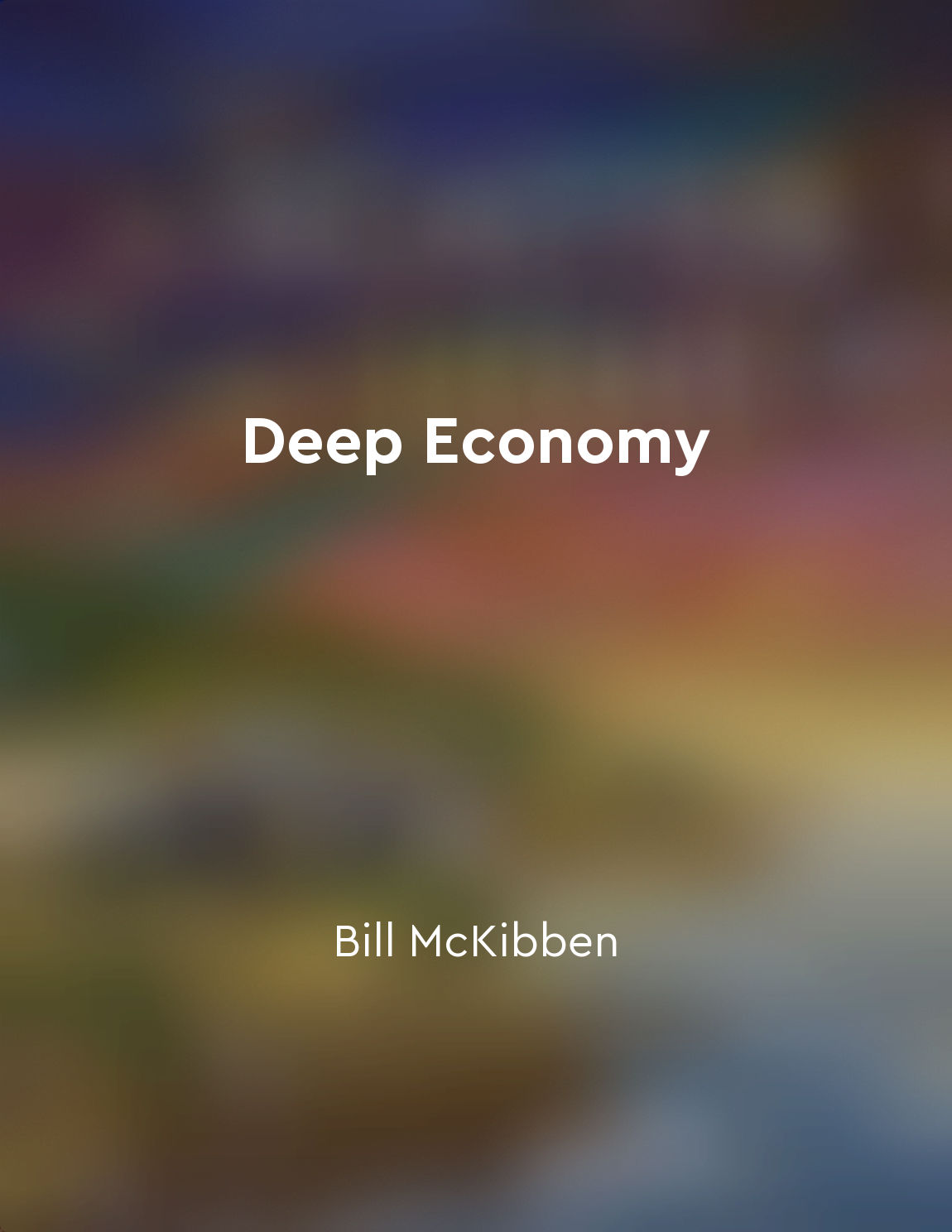Industrial agriculture relies on fossil fuels from "summary" of The Omnivore's Dilemma by Michael Pollan
Industrial agriculture relies on fossil fuels. Everything about the way we eat today - the food we eat and how it is produced - is entangled in a web of fossil fuel dependence. From the fertilizers sprayed on the fields to the irrigation systems that water the crops, from the trucks that transport the food to the packaging that contains it, fossil fuels are everywhere in the process. The use of fossil fuels in industrial agriculture is so pervasive that it is hard to imagine how the system could function without them. Every step of the way, from planting to harvesting to distribution, relies on the energy derived from fossil fuels. The tractors that plow the fields and the combines that harvest the crops run on gasoline. The synthetic fertilizers made from natural gas provide the nutrients that the soil lacks. Even the plastic packaging and processing of the food are products of fossil fuels. The industrial agriculture system is highly efficient at producing vast quantities of food, but this efficiency comes at a cost - a heavy reliance on finite fossil fuels. As the world's population continues to grow and demand for food increases, the strain on these limited resources will only intensify. The consequences of this dependence on fossil fuels are far-reaching, affecting not only the environment but also the economy and social fabric of our society. The use of fossil fuels in industrial agriculture is not sustainable in the long run. As these non-renewable resources continue to dwindle, the need to find alternative methods of food production becomes more urgent. The challenge is to develop a new model of agriculture that can feed a growing population without depleting the earth's resources. This will require a fundamental shift in the way we think about food and how it is produced. In the end, the concept of industrial agriculture relying on fossil fuels is a stark reminder of the interconnectedness of our food system with the larger world around us. It is a call to action to reconsider our current practices and work towards a more sustainable future for food production.Similar Posts
Energy transitions are complex and gradual
Energy transitions are complex and gradual processes that involve a multitude of interrelated factors. They require changes in ...

Build climatesmart infrastructure
To ensure a sustainable future for our planet, it is imperative that we prioritize the development of climate-smart infrastruct...
International cooperation is key to promoting sustainable practices in agriculture
In agriculture, the challenges we face are global in nature. Climate change does not respect national borders, nor do pests and...

Balance blood sugar levels for sustained energy
In order to maintain sustained energy throughout the day, it is crucial to keep our blood sugar levels in balance. When our blo...
Business practices can be made more sustainable
One key aspect of environmental economics is the idea that businesses can adopt practices that are more sustainable over time. ...
Grassroots movements are vital in the fight against climate change
Grassroots movements are where our best hope lies. They are the antidote to the profit-driven, growth-obsessed system that got ...
Dairy products should be consumed in moderation
It's a common belief that dairy is essential for strong bones and overall health. However, that might not necessarily be the ca...
Food is more than just nutrients
Food is a complex entity that goes beyond simply providing us with essential nutrients. It is intertwined with cultural, social...

A sense of place is crucial for human flourishing
In our fast-paced, globalized world, it's easy to overlook the importance of having a deep connection to a specific place. Yet,...

Personalization is essential
Personalization is essential when it comes to figuring out what to eat. We are all unique individuals with different genetic ma...
